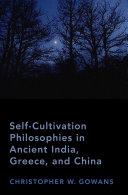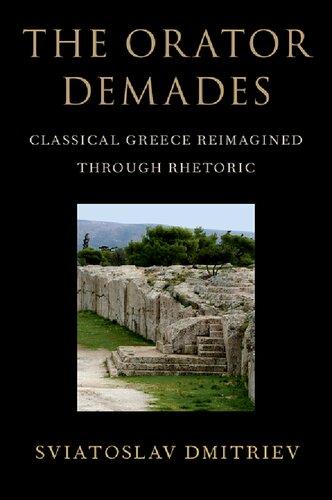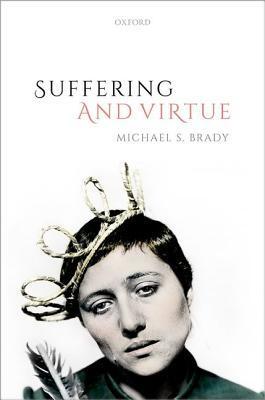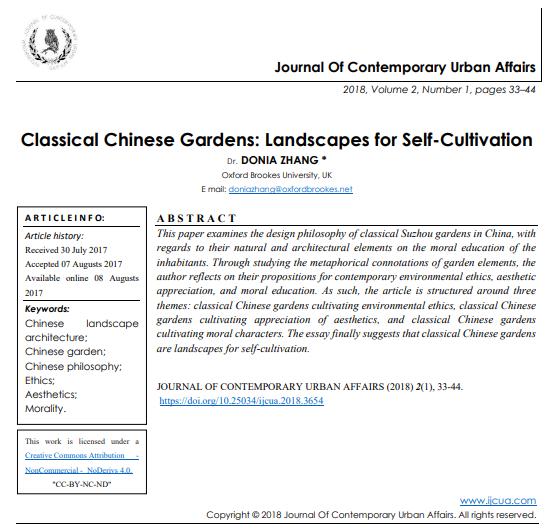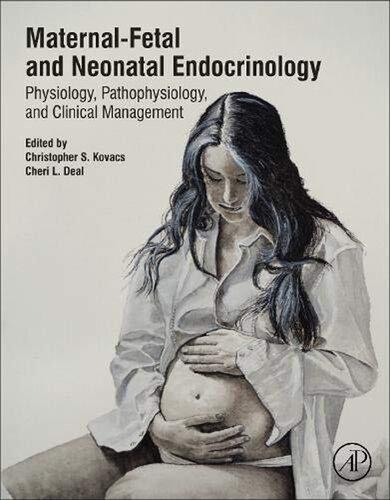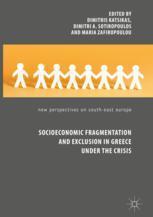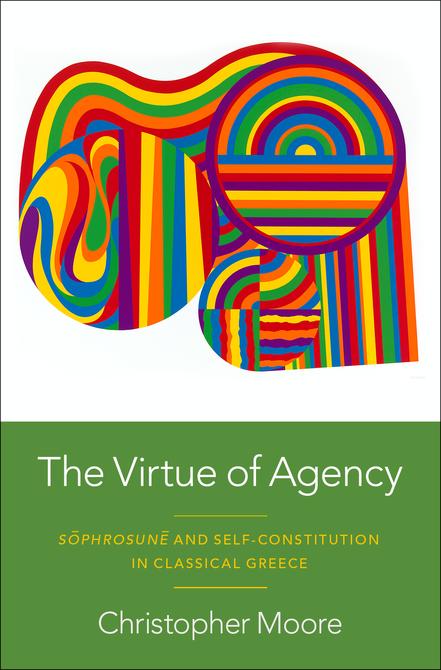Selected Abbreviations and Editions
A. Aeschylus: Page, D., ed., Aeschyli Septem Quae Supersunt Tragoedias (Oxford: Oxford University Press, 1972).
fr. fragment (in TrGF)
Pers. Persians
Ag. Agamemnon
Eum. Eumenides
Choe. Choephoroi (Libation Bearers)
Sept. Seven against Thebes
Supp. Suppliant Maidens
[PB] Prometheus Bound
Aesch. Aeschines
Anon. Iambl. Anonymus Iamblichi (in Iamblichus)
Antiph. Antiphon: Pendrick, G., Antiphon the Sophist: The Fragments. Cambridge Classical Texts and Commentaries (Cambridge: Cambridge University Press, 2002).
Antisth. Antisthenes: Prince, S., Antisthenes of Athens: Texts, Translations, and Commentary (Ann Arbor: University of Michigan Press, 2016).
Ar. Aristophanes: Wilson, N. G., ed., Aristophanis Fabulae. 2 vols. (Oxford: Oxford University Press, 2007).
Ach. Acharnians
Nub. Clouds
Ran. Frogs
Th. Women at the Thesmophoria
Pl. Plutus (Wealth)
Arist. Aristotle
EE Eudemian Ethics: Susemihl, F., ed. Eudemi Rhodii Ethica (Leipzig: Teubner, 1884).
NE Nicomachean Ethics: Bywater, I., ed., Aristotelis Ethica Nicomachea (Oxford: Oxford University Press, 1894).
Metaph. Metaphysics: Jaeger, W., ed., Aristotelis Metaphysica (Oxford: Oxford University Press, 1957).
MM Magna Moralia: Susemihl, F., ed., Aristotelis quae feruntur Magna moralia (Leipzig: Teubner, 1883).
[Probl.] Problemata: Bekker, I., ed., Aristotelis Opera, vol. 2 (Berlin: Reimer, 1831).
Pol. Politics: Ross, W. D., ed., Aristotelis Politica (Oxford: Clarendon Press, 1957).
Rhet. Rhetoric: Ross, W. D., ed., Aristotelis Ars Rhetorica (Oxford: Oxford University Press, 1959).
Top. Topics: Ross, W. D., ed., Aristotelis topica et sophistici elenchi (Oxford: Clarendon Press, 1958).
Aristox. Aristoxenus
Pyth. pr. Pythagorean Precepts: Huffman, C., ed., Aristoxenus of Tarentum: The Pythagorean Precepts (Cambridge: Cambridge University Press, 2019).
VA Life of Archytas: Huffman, C., ed., Archytas of Tarentum: Pythagorean, Philosopher, and Mathematician King (Cambridge: Cambridge University Press, 2005).
Bacchyl. Bacchylides: Snell, B. and H. Maehler, eds., Bacchylides. Carmina cum fragmentis, 10th ed. (Leipzig: Teubner, 1970).
BNJ Worthington, I., ed., Brill’s New Jacoby. 2nd ed. (Leiden: Brill, 2018–).
CEG Hansen, P. A., ed., Carmina epigraphica Graeca, 2 vols. (Berlin: De Gruyter, 1983–89).
Democr. Democritus (in LM)
Diss. Log. Dissoi Logoi (in LM)
DK Diels, H., and W. Kranz, eds., Die Fragmente der Vorsokratiker, 6th ed. (Berlin: Weidmann, 1951).
DL Diogenes Laertius: Dorandi, T., ed., Diogenes Laertius: Lives of Eminent Philosophers (Cambridge: Cambridge University Press, 2013).
DPhA Goulet, R. ed., Dictionnaire des Philosophes Antiques (Paris: CNRS Éditions, 1989–2003).
Eur. Euripides: Diggle, J., ed., Euripides Fabulae, 3 vols. (Oxford: Oxford University Press, 1981–94).
Bacch. Bacchae
Cycl. Cyclops
Hipp. Hippolytus
IA Iphigenia at Aulis
Med. Medea
Or. Orestes
fr. fragments (in TrGF)
Hdt. Herodotus: Wilson, N. G., ed., Herodoti Historiae, 2 vols. (Oxford: Oxford University Press, 2015).
Hes. Hesiod: Most, G. W., ed., Hesiod, rev. ed., 2 vols. Loeb Classical Library (Cambridge, MA: Harvard University Press, 2018).
WD Works and Days
Th. Theogony
Hom. Homer
Il Iliad: West, M. L., ed., Homeri Ilias, 2 vols. (Leipzig: Teubner, 1998–2000).
Od. Odyssey: West, M. L., ed., Homerus: Odyssea (Berlin: De Gruyter, 2017).
Iambl. Iamblichus of Chalcis
Protr. Protreptic: Pistelli, E., ed., Iamblichi Protrepticus (Stuttgart: Teubner, 1967).
VP On the Pythagorean Way of Life: Nauck, A., ed., Iamblichi De vita Pythagorica (St. Petersburg: Eggers, 1884).
Ibyc. Ibycus (in PMG)
Isoc. Isocrates: Mandilaras, B. G., ed., Isocrates: Opera Omnia, 3 vols. (Munich: Teubner/Saur, 2003).
LM Laks, A., and G. Most, eds., Early Greek Philosophy, 9 vols., Loeb Classical Library (Cambridge, MA: Harvard University Press, 2017).
LSJ Liddell, H. G., R. Scott, and H. S. Jones, A Greek-English Lexicon, 9th ed. (Oxford: Clarendon Press, 1925–40).
Lys. Lysias: Carey, C., ed., Lysiae Orationes cum Fragmentis (Oxford: Oxford University Press, 2007).
OCD Hornblower, S., A. Spawforth, and E. Eidinow, eds., Oxford Classical Dictionary, 4th ed. (Oxford: Oxford University Press, 2012).
PCG Kassel, R., and C. Austin, eds., Poetai Comici Graeci, 8 vols. (Berlin: De Gruyter, 1983–95).
Pind. Pindar: Race, W. H., ed., Pindar, rev. ed., 2 vols., Loeb Classical Library (Cambridge, MA: Harvard University Press, 2012).
Isthm. Isthmian Odes
Nem. Nemean Odes
Ol. Olympian Odes
Pyth. Pythian Odes
fr. fragment
Paeans Rutherford, I., Pindar’s Paeans (Oxford: Oxford University Press, 2001).
Pl. Plato: Burnet, J., ed., Platonis Opera (Oxford: Oxford University Press, 1900–1907).
Alc. Alcibiades
Chrm. Charmides
Crat. Cratylus
Euthd. Euthydemus
Grg. Gorgias
La. Laches
Phd. Phaedo
Phdr. Phaedrus
Phlb. Philebus
Pol. Statesman, Politicus
Prot. Protagoras
Rep Republic: Slings, S. R., ed., Platonis Rempublicam (Oxford: Oxford University Press, 2003).
Symp. Symposium
Tim. Timaeus
Plut. Plutarch: Nachstädt, W., W. Sieveking, and J. B. Titchener, eds., Plutarchi Moralia, 7 vols. (Leipzig: Teubner, 1966–71).
PMG Davies, M., and D. L. Page, eds., Poetarum Melicorum Graecorum Fragmenta, vol. 1 (Oxford: Clarendon Press, 1991).
Σ Scholiast
SEP Zalta, E., Stanford Encyclopedia of Philosophy, Metaphysics Research Laboratory, Department of Philosophy, Stanford University, 2022. Online.
Soph. Sophocles: Lloyd-Jones, H., and N. G. Wilson, eds., Sophoclis Fablulae (Oxford: Oxford University Press, 1990).
Aj. Ajax
Ant. Antigone
El. Electra
OC Oedipus at Colonus
OT Oedipus Tyrannos
Ph. Philoctetes
fr. fragment (in TrGF)
SSR Giannantoni, G., ed., Socratis et Socraticorum Reliquiae (Naples: Bibliopolis, 1991).
Stob. Stobaeus: Wachsmuth, C., and O. Hense, eds., Joannis Stobaei Anthologium, 5 vols. (Berlin: Weidmann, 1884–1912).
Thg. Theognis: West, M. L., ed., Iambi et Elegi Graeci, 2 vols. (Oxford: Oxford University Press, 1989–92).
Thuc. Thucydides: Jones, H. S., and J. E. Powell, eds., Thucydidis Historiae, 2 vols. (Oxford: Oxford University Press, 1942).
TrGF Snell, B., R. Kannicht, and S. Radt, eds., Tragicorum Graecorum Fragmenta, 6 vols. (Göttingen: Vandenhoeck and Ruprecht, 1971–2004).
Xen. Xenophon: Marchant, E. C., ed., Xenophontis Opera Omnia, 2nd ed., 5 vols. (Oxford: Clarendon Press, 1921).
Anab. Anabasis
Ap. Apology of Socrates
Cyn. Cynegeticus (On Hunting with Dogs)
Cyr. Cyropedia
Hell. Hellenika (History of Greece)
Hipparch. Hipparchus (On the Cavalry Commander)
Lac. Pol. Constitution of the Spartans
Mem. Memorabilia (Memoirs of Socrates)
Oec. Oeconomicus (On Estate Management)
Symp. Symposium (Banquet)
Other abbreviations are generally from OCD
Translations are my own unless otherwise credited.
Note on Reference to “Presocratic” Fragments
The text of ancient writings by and about the early Greek writers eventually called “philosophers” comes from LM, unless noted, and is cited by both DK and LM number, if available. In DK, “A” precedes testimonia, “B” precedes fragments. In LM, “P” precedes information about the philosopher, “D” precedes fragments or doctrinal statements, and “R” precedes later reception of the philosophers’ thought (according to the editors’ judgment).
1 Debating a Virtue
Sôphrosunê
, a Virtue of Agency
This book tells a story about the Greek virtue sôphrosunê (σωφροσύνη) during the classical era.1 It is a story of a virtue coming to increased attention and esteem, the queries and debates that followed, and the theories put forward to resolve those puzzles and disagreements.
By the fifth century sôphrosunê was becoming canonical—one among three or four other virtue-terms which, together, name the competences of the wholly good person. By the fourth century, this canon generally included, besides sôphrosunê, wisdom (σοφία), courage (ἀνδρεία), justice (δικαιοσύνη), and sometimes piety (εὐσέβεια). All are familiar, but sôphrosunê least so. Accordingly, the descriptive purpose of this book is to show how writers in the classical period used the term, and especially what they said about it, how they esteemed it, what they contended over, and how the philosophically minded of them sought to clarify or articulate or redefine the term in response to those contentions. Without surveying usages exhaustively or taxonomizing every variety, the goal is to reconstruct how these authors understood sôphrosunê as a fundamental human excellence.
Hardly separable from the descriptive purpose of this book is its interpretative purpose. It seeks to answer questions that may not have been asked in such explicit terms by the Greeks themselves: Why was sôphrosunê so esteemed? Why did it merit such disagreement? Why did fourth-century writers include it in their quadripartite or other-sized canons of virtues? Why was it sometimes even treated as the condition for the other virtues? In brief: What fundamental aspect of human excellence did the term sôphrosunê actually point to?
1 I pronounce σωφροσύνη, which I transliterate as sôphrosunê (though other authors write sophrosyne), soe-froe-SUE-nay, as though the Greek accent over the υ serves as a stress marker; some others pronounce it suh-FRAH-zoo-nay, preferring the English pattern of stressing the antepenult and giving the omicron a broader sound. I always transliterate the term (for discussion of English translations of the term, see the epilogue) and usually use the abstract nominal form as a stand-in for the other main parts of speech (unless the form is important or English grammar prefers another part of speech): sôphronein (verb), sôphrôn (adjective), sôphronôs (adverb). Other forms include sôphronizein (verb: “to cause to be sôphrôn”), sôphronismos (noun: “result of sôphronizein”), and sôphronikos (adjective: “sôphrôn-like”).
The Virtue of Agency. Christopher Moore, Oxford University Press. © Christopher Moore 2023. DOI: 10.1093/oso/9780197663509.003.0001
Despite the range of contexts in which Greek authors used the term sôphrosunê, their divergent sensibilities and judgments about it, and their distinctive elaborations on the virtue’s nature, we come to see that they shared a basic assumption. Sôphrosunê is the capacity to act well in the face of a distinctive human challenge: the conflicting heterogeneity of our ends. Given our range of interests, relationships, and needs, we may simultaneously feel several opposed inclinations to act, and often the one we feel most strongly is not the one we should act on now. Sôphrosunê allows us to choose our action on grounds independent of the phenomenological quality of our inclinations—their strength or noisiness or urgency—when that quality does not actually convey practical wisdom. This capacity for a more deliberative and hopefully more successful action may be formulated in various ways, depending on one’s preferred moralpsychological formulations—as the capacity to act only on certain desires, to pursue only certain goals, to acknowledge only certain norms, to accept only certain reasons. However we put it, we need sôphrosunê because we sometimes feel like doing things that, outside the cramped experience of that feeling, differ from what we can realize we should do.
The other virtues can be seen as solutions to human challenges: justice to our living among others who have rights and interests; courage to the fact that defending our rights and interests causes risk of harm to ourselves; piety to the invisible and aloof gods who may nevertheless demand our fealty; wisdom to the obscurity of practical problems and the uncertainty of future outcomes. These are not exclusive, sharply delineated, or equal-sized domains; their scope and reach depend on the conception of the situation. For instance, wisdom might assess who has which rights and interests and the best way to respect them; it may take courage to respect those rights that seem contrary to tradition. Because of these overlapping domains, sôphrosunê can sometimes seem a particular capacity— the capacity to deal with desiderative plurality—but also the general term for every other virtue. Analyzing courage as the competition between the desire for safety and the desire for honor turns it into a class of sôphrosunê; so, too, justice as wanting to respect others but also to keep one’s money, or piety as the wish to benefit the gods but also to keep to human affairs. Hence sôphrosunê’s distinctive association with those conflicted desires less readily found in martial, political, or religious contexts, such as those for bodily pleasure or self-aggrandizement. Still, the solution sôphrosunê provides has a general character.
The problem with having multiple simultaneous desires or goals or actionguiding principles is plain: they cannot all be satisfied, they may not be equally good, and one’s appraisal of them at one moment may not match one’s appraisal at other moments. Though one may experience a given desire as supremely urgent, it may not warrant so much attention. What feels like an emergency may be no such thing. Indeed, satisfying a dominating desire may prevent satisfying
desires that, with a few moments’ distance, would reveal themselves to be more valuable from the long-term perspective or otherwise more deserving of satisfaction. Further, if one acts only as the seemingly strongest desire demands, and the relative strength of desires fluctuates for physiological or psychological reasons, one may keep switching actions, and many of the most important actions need prolonged and stable engagement. And sometimes there is not even a single strongest desire, so something else is needed to decide what to do. These three problems—false alarms, mercuriality, and indeterminacy—represent the sorts of problems that sôphrosunê addresses.
Sôphrosunê is a power of practical discrimination, but it is also one of selfconstitution. You observe that you have many inclinations to do one thing or another, but you commit yourself to acting only on those that advance what you, as an ongoing and farsighted being, really want to be doing. Not every inclination does so equally. You deem some of those inclinations as less representative of yourself, as alien or adventitious or merely bodily or from a less authoritative part of the soul. Others you deem more representative and identify with them, so to speak, saying, “This is what I want,” and, in committing yourself to them, incorporating them, you become them and they become you. Sôphrosunê is thus the virtue that makes each of us count as a “self,” something or someone that has practical integrity through time. The alternative is being a mere site of desiresatisfaction and desire-frustration. A self originates actions for which it takes full responsibility. Adult human individuals do not merely embody movements or behaviors, as do animals and babies, and they do not merely carry out actions for somebody else, as do tools, robots, and, in a qualified way, slaves. They are agents. As agents, they act rather than simply move; it is they, rather than physiological energies or social pressures, who do the acting.
The achievement of the agency that comes from self-constitution is the goal of nearly every regimen of maturation, what parents hope for their children and good societies hope for their citizens. A person may not in every instance strive to act independently of her potent feelings. But we do expect people to attain some degree of agency, some authority over the desires that prompt them to action. Only in this way does a person’s actions belong to that person, and not just to the impulses and habits imputed by nature, society, or happenstance.
Yet is sôphrosunê just an executive virtue of prudence and rationality, of an enlightened self-interest, concerned with being an even-keeled captain of one’s actions, whatever they are? Is it not also an ethical virtue, concerned with doing the right thing toward others? The answer depends on the desires that we should act on, the goals to which we should strive, the norms that should guide us. It depends on the correspondence between what I really want or value, what I identify with as most properly my desire or goal or self-defining ruling, and the norms we might take as objective: what the gods deserve, what justice demands, what
the laws of reason require. That correspondence is controversial. One might suppose that they do correspond: we are supremely vulnerable to the gods, and so we do ideally desire to furnish them with what they deserve; personal well-being depends on civic comity, and so we do ideally desire to meet the demands of justice; hard practical or theoretical problems do not get solved through sloppy thinking, and so we do ideally desire to think carefully and well. Or the ethical life is for some other reason supremely valuable and desirable, or even already valued and desired. But one might equally doubt that the norms of pious, just, and reasonable action are really one’s own self-constituting norms, and deny that they reflect one’s deepest, most stable, and most internally consistent desires. They might seem merely distant and alien authorities. By desiring to propitiate some mysterious gods, or following the decrees of a hyperventilating democratic assembly, or obeying a logician’s parameters for valid inference, am I not in fact abdicating from or alienating my agency, submitting myself to someone else’s will, being mastered rather than mastering myself? This doubter might go on to expand his criticism. Might not any standard deployed to judge between my desires involve something external to those desires and thus external to myself? Isn’t agency simply the capacity to satisfy the desires that I happen to have? Isn’t sôphrosunê, in seeking to separate myself from my desires, precisely the virtue that undermines agency?
The drama to be found in our story of sôphrosunê in classical Greece comes from the discovery of these questions and the refinements and response they prompted. The apologists for the virtue must show how ignoring or neutralizing some of one’s desires, and adopting what may appear an external regime of value, can constitute oneself as a self, an agent, an effective and responsible actor. The critics of the virtue must show how a life meritorious even in one’s own terms can unfold without any selection between and consequent commitment to the ends or guidelines or desires that motivate or guide one’s actions.
The story is not so simple as pro and con, however; there are alternative formulations, inchoate presentiments, idiosyncratic takes, and rabbit holes of one depth or another. But its significance should be clear. Greek discourse about sôphrosunê is to be seen as discourse about the ideal of agency: How do we become people who act for ourselves?
A Laudatory Attribution Becomes Contentious
The term sôphrosunê appears in the Homeric epics, where it denotes the admirable capacity not to blurt or act out in situations where doing so, no matter how natural or satisfying, would be contrary to one’s broader goals or commitments. This rational self-discipline becomes thematic a century later, in the sympotic
poetry of Theognis, as an admirable trait of reliable individuals and loyal citizens. By the early fifth century, it appears among the cardinal virtues of Pindar and Aeschylus, as it does on celebratory tombstones and in the philosophical aperçus of Heraclitus, now glossing the virtue in terms of Delphic self-knowledge. By the later fifth century, the term appears across the literary genres—historiography, tragedy, comedy, and oratory—reflecting its essential position in Greek evaluative and ethical vocabulary.
As the social importance of sôphrosunê grows, so too does its correct application or retraction. Ascription, or withholding of ascription, becomes eminently valuable. This raises the possibility of disagreement—about the virtue’s scope, criteria, acquisition, operation, and real significance. The historical record reveals this disagreement. Three-quarters through the fifth century, extant literature first depicts and dramatizes debates about sôphrosunê. It does so vigorously and expansively. As the characters of this literature valorize themselves as sôphrôn and contend with that valorization, its authors prove the centrality of the virtue for thinking about the life successfully carried out—as a leader, a parent, a citizen, and generally as a grown-up person. In their querying of the virtue’s nature, they raise and refine deep questions about human maturity, in particular about our being actors rather than patients in our own lives. We see that these debates concern our capacity to act on our own behalf, our constituting ourselves as agents.
Three debates from the decade around 425 bce the period of Socrates’ maturity, the height of the sophistic period, the beginning of the Peloponnesian War—capture three dimensions of disagreement about sôphrosunê, and thereby three dimensions on which the term serves as commendation. An exchange early in Herodotus’ Histories (finished in the 420s bce) concerns the evaluation of competent action, formulated in the language of sôphrosunê. The text asks, Against what background of goals and interests do we judge a person a successful agent, someone who does what he really wants, rather than simply a tool to satisfy the whims of madness? A series of conversations in Euripides’ Medea (431 bce) concerns the type of considerations and kind of reasoning necessary for being deemed sôphrôn. What makes certain motivations count as proper to oneself, and thus acting from them sôphrôn, and what makes others count as extraneous, as the grounds only of foolish action? Finally, the famous contest between Better and Worse Argument in Aristophanes’ Clouds (first production 423 bce) concerns the viability and value of an education to sôphrosunê. What could bring the virtue about, and would having it do more good than harm?
These are not the only debates about sôphrosunê from the period; in Chapters 4–6 we return to more in Euripides and look closely at implied or actual debates attributable to Critias, Democritus, Antiphon, Thucydides, and Socrates, other major intellectuals of the period. The present selection of discussions
of sôphrosunê only hints at the rich and profound inquiry into the virtue to be found in the decades that follow. In the second half of this chapter, I lay out why I think a study of this classical Greek inquiry into sôphrosunê matters, how earlier studies went about that inquiry, and how this one will go.
Herodotus’ Histories
In Book 3 of his Histories, Herodotus tells the story of Cambyses’ insanity. This story culminates in a debate about the proper attribution of sôphrosunê Cambyses, the king of Persia, wants to disprove the Persian view that he is crazy and out of his mind (παραφρονέειν
He proposes a test that, should he pass, will show the Persians have mistaken his state of mind, but should he fail, will show that he in fact, as he puts it, lacks sôphrosunê (ἢν δὲ ἁμάρτω,
This test of his sôphrosunê is a test of ability to do precisely what he intends do. He will try to shoot an arrow at a small target far away. As it turns out, his target is the chest of a boy, the son of his most trusted messenger, Prexaspes, the man indeed to whom he addresses this proposal. He hits his target exactly. Full of pride at his accomplishment, he laughs, “Now it’s clear—I’m not crazy; it’s the Persians who are out of their minds!” (οὐ μαίνομαι
Prexaspes is not convinced: he sees that Cambyses has indeed lost his mind (οὐ φρενήρεα).5 Herodotus notes that it is only much later, when Cambyses comes to recognize the circumstances of his own immediate death, that he regains his sôphrosunê (ἐσωφρόνησε).6
Cambyses believes that he has shown himself sôphrôn through his competence to execute his plans, in this case through perfect perceptual and body control. He has understood “out of one’s mind” to mean a failure of agency, a disconnect between intention and accomplishment. He has a reason to do something, namely to prove his prowess, and he does it, unimpeded by cognitive or physical distraction or obstacle. The Persians think he cannot; he shows them that he can. For him, sôphrosunê is the virtue of agency. So, too, for Prexaspes and Herodotus; and this is precisely why they deny that he is sôphrôn: he is not acting on his own authority; he is not in control.
So there is disagreement about the ascription of sôphrosunê and the ascription of agency. How Herodotus denies ascriptions of sôphrosunê elsewhere clarifies
2 Hdt. 3.34.3.
3 Hdt. 3.35.2.
4 Hdt. 3.35.4.
5 Hdt. 3.35.4.
6 Hdt. 3.64.5.
this disagreement.7 A sôphrôn people would not have set sail for Troy simply because Helen was abducted—that was a disproportionate and even mistaken response, presumably their jealousy or contentiousness taking charge.8 One should not attack enemies without due diligence (ἀβούλως) and without being very sôphrôn about what one is doing (ἐπὶ τὸ σωφρονέστερον
λάμβανε), for example by delaying until one has adequate forces; again, being hot to fight can undermine one’s overall campaign.9 Though other Greeks may know more, the Spartans have more sôphrôn conversations, evidently preferring to listen and respond carefully over putting themselves forward as experts.10 Xerxes presents sôphrosunê as precisely this sensitivity to others’ insights and not just to one’s own immediate inclinations:
Artabanus, there was a moment when I was lacking sôphrosunê, uttering nonsense to you for your useful advice; after not much time, however, I changed my mind, recognizing that I should do the things that you advised.
In each of these cases, being sôphrôn amounts to being responsive to something other than one’s pressing inclinations—to go after Helen, to attack, to mansplain—in order to satisfy one’s longer-term, more fundamental, or more considered goals and interests. This framework holds for whatever these goals and interests are, whether self-regarding or other-regarding, and in whatever way they are judged superior to those sought by one’s present inclinations. The basic assumption is that people have a sometimes inconsistent complex of ends, that certain of those ends have an evaluative priority, and yet that sometimes quite other ends have an attentional or visceral priority. Accordingly, people sometimes want to act on a desire that, with more or deeper reflection, they would take to be less worth acting on—for example, the desire for glory or revenge or self-confidence. By satisfying such a desire, they would prevent themselves from satisfying others they might more closely identify with—for example, the desire for safety or victory or other form of long-term success. In every case, sôphrosunê marks the capacity to distinguish one’s feeling about what to do now from one’s
7 For more general remarks, see Rademaker (2005, 194–201).
8 Hdt. 1.4.2. This is the Persian view; they consider the abduction of women unjust but the avenging of abductions senseless (ἀνοήτων).
9 Hdt. 3.71.3.
10 Hdt. 4.77.
11 This is in all manuscripts except A, which has ἐφρόνεον.
judgment about what one should in general be doing, and to act in accordance with the latter rather than the former in cases where they diverge.
All this clarifies the competing judgments about Cambyses’ sôphrosunê. There is a disagreement about what Cambyses’ goals, interests, or desires really are, and thus whether his arrow strike has satisfied them. Cambyses constructs his goals narrowly: to execute his immediate intentions, to express his anger at being dishonored, to show his total authority over life and death. Prexaspes and Herodotus construe his goals differently, imagining that should Cambyses be in a position to reflect on his overarching commitments he would see that they include much else (a position he enters only once he must confront the nearness of his death). Those commitments might include treating his close associates with respect, cultivating appreciation for his leadership, avoiding needless death, and exercising his persuasive powers. He lacks sôphrosunê because he does not act on their basis; he is insane because he is currently incapable even of considering doing so. So each party agrees that sôphrosunê is the virtue of agency; they disagree, so to speak, about the conditions for ascribing agency. For Cambyses, it is narrow: a single desire and its direct satisfaction; for others, it is wide: a complex of desires, some adventitious and others intrinsic, their satisfaction either immediate or deferred.
Euripides’ Medea
The Medea of 431 bce depicts Medea’s anger (ὀργή) in light of her insight (σοφία) and dramatizes competing assessments of the quality of her reasoning. It prompts the play’s audience to reflect: What makes acting on a certain motivation consistent with sôphrosunê? What makes for sôphrôn decision-making? This is a version of the question Herodotus asked about Cambyses, but Euripides does it with fine-grained attention to the various possible motivations for Medea’s actions—as it turns out, again, the killing of someone’s children.
Talk of sôphrosunê begins in an exchange between Medea and Creon. Creon is the father of the woman for whom Jason left Medea. Creon hopes to exile Medea, since he fears her vindictiveness and worries that he himself may come in for retribution. Medea, refusing exile, reassures him that she directs no animosity toward him, despite his family connection. Creon did no injustice (ἠδίκηκας) in following his heart (θυμὸς ἦγεν) when he gave his daughter to Jason; in her eyes, she says, he was sôphrôn in doing so.12 Medea must be saying that Creon acted wholeheartedly, so to speak, from his fatherly sentiment, his deep interest in marrying off his daughter well, and broke no overriding obligations in the
12 Eur. Med. 309–11.
process.13 He did not act out of anger or pride or some other momentary emotion reprehensibly inconsistent with a humane consideration for others.14
Medea’s praise of Creon’s sôphrosunê, whether noble or strategic, puts in sharper focus a later sequence of problematic sôphrosunê self-attributions. The sequence begins with Jason’s major self-defense speech, justifying his marriage to Creon’s daughter. He claims that he was, first, wise, then sôphrôn, and, finally, a great friend to Medea and the children.15 He gives negative and positive reasons for the triple virtuosity of the marital realignment.16 Negatively, he claims not to have been motivated by sex or ambition; he did not seek conjugal novelty or more children.17 Positively, “the main thing” (τὸ μὲν μέγιστον) he says he wanted was for his family to “live well” (οἰκοῖμεν καλῶς), with sufficient prosperity and society for his children. In sum, he says, he wanted to flourish (εὐδαιμονοίην), and for this he deliberated (βεβούλευμαι) well.18 Medea he chastises for not seeing this, obsessed as she is with the marriage bed, which for her trumps everything else desirable and worthwhile (τὰ λῷστα καὶ κάλλιστα).19
Jason has called himself sôphrôn on the grounds that his primary desideratum was his own maximal well-being, which includes his flourishing and helping his offspring live well, and he has deliberated on the way to accomplish both. Like Creon, he has acted in ways fundamental for a father, and he has done so thoughtfully and reflectively. He does not deny the existence of libidinal or honor-bound feelings, but presents them as not “the main thing”—they were not decisive for
13 LSJ s.v. θυμός II.1.
14 Later in the play, θυμός, “heart,” has a more equivocal sense: Medea says, “despite knowing what bad things I will suffer, my heart gets the better of my deliberation” (θυμὸς δὲ κρείσσων
βουλευμάτων, 1079). She means that her sentiments—to avenge herself against Jason—go so deep in her that she cannot reason herself out from them. For further discussion, see Kovacs (1986, 351n12). In the seventh Homeric Hymn (To Dionysus), the pilot of a pirate ship has a sôphrôn heart (θυμός, 49): unlike his crewmates, he is calm when the god appears in the form of a lion.
15 Eur. Med. 550–51.
16 I take the reasons to pertain equally to sophia, sôphrosunê, and philia rather than some reasons pertaining exclusively to wisdom, some to sôphrosunê, and some to philia. For a contrasting view, see Mastronarde (2002 ad 548): his “demonstration is mostly about his prudence” (sophos); friendship is his “planning for the future”; sôphrosunê “lies only in his claim not to have acted from desire for a new, young sexual partner.” But this is inconsistent with the Creon exchange discussed above (which Mastronarde does not discuss) and with what follows; line 884 in particular, discussed below, seems to confirm it, as even Mastronarde seems to recognize (p. 313).
17 Eur. Med. 555–58:
18 Editors have taken issue with the first-person singular form, εὐδαιμονοίην, doubting that he could really be saying that he wanted to flourish rather than that he wanted himself and Medea to flourish. Whereas some editors have suggested emending the text, Mastronarde (2002) and Page (1938 ad 565) treat the verb form as evidence for Jason’s “very self-centred” nature. But Jason is explaining his decision-making; his flourishing is, as it were, the ultimate reason for action; his flourishing depends (as he implies) on the overall flourishing of his family, where the well-being of his children contribute most to this.
19 Eur. Med. 559–72. When she reacts to his self-praise as sôphrôn, etc., Jason chastises her, “Hold your peace” (ἀλλ᾽ ἔχ᾽ ἥσυχος, 550), which, as we will see, basically means “Be sôphrôn.”
his action.20 So sôphrosunê means the capacity to let what is really important to you (if and once you have figured it out) govern your actions. According to Jason, Medea fails to let what is more important win out. Whether Jason is right about her, and about himself, are open questions.
Jason’s vaunting of his sôphrosunê echoes through the play. About three hundred lines later, Medea pretends, for a spell, to reconcile with him. She says she now realizes how sôphrôn Jason in fact is.21 This realization came to her, she says, as she deliberated with herself, resolved her misapprehensions, and succeeded at appreciating his reasons.22 She appears to be presenting herself as sôphrôn in the very recognition of another’s sôphrosunê she can now see where authoritative judgment resides. Jason accepts Medea’s improved self-understanding: your anger was reasonable, he says, but now your heart has come to see what is better, more desirable (ἐς τὸ λῷον); through time, you have recognized “the superior plan” (τὴν νικῶσαν . . . βουλήν). This discovery, Jason says, is exactly the task of the sôphrôn woman.23 Jason treats sôphrosunê as the capacity to forgo acting on the basis of one’s reactive attitudes and to treat what is actually best as the proper motivation for action.
Of course, what Jason deems “best” rather than a merely reactive attitude— what is a core commitment rather than a superficial resentment—is tendentious. Later in the play he says again that a properly sôphrôn woman should find the loss of a marriage a mere triviality (σμικρόν) rather than a matter affecting her identity generally, and that Medea finds everything bad (σοὶ δὲ πάντ᾽ ἐστὶν κακά), implying that she does not know how to order her desires (e.g., to maintain her marriage versus to help her children flourish).24 Jason’s analysis at least clarifies the stakes: sôphrosunê is the virtue whereby one can flourish by being motivated by some interests or desires rather than others; it is a virtue of distinguishing between various reasons for action. How we characterize the more proper interests will be an ongoing source of disagreement. Whatever they are, however, the
20 When the Chorus of women later sings in the second stasimon, requesting that “sôphrosunê favor me, fairest gift of the gods” (στέργοι
κάλλιστα θεῶν, 636), they request only as much love (ἔρως) as would be sufficient for happiness but would not make them contentious or mad (627–44). Page (1938 ad 635) compares this passage to A. Ag. 927–28, τὸ
φρονεῖν | θεοῦ
δῶρον (not to think badly is god’s greatest gift).
21 Eur. Med. 884–85:
ἐγὼ δ’ ἄφρων.
22 The speech runs 869–905.
23 Eur. Med. 908–13. This usage does not mean sexual propriety but, as Mastronarde (2002 ad 913) puts it (though over-specifically), “meekly following the lead of a supervising male.”
24 Eur. Med. 1367–69. Mastronarde (2002 ad 1369) glosses sôphrôn as having “good sense and selfcontrol.” The present interpretation of σοὶ
“everything is bad to you, i.e., in your eyes,” which is influenced by the preceding statements and the overall interpretation of the virtue, and follows Kovacs, is not shared by all translators. (Page [1938 ad 1369] thinks that such a reading “has no proper relevance here,” though it evidently does.) Mastronarde (2002 ad 1369) gives “you have all wicked qualities,” taking ἐστιν as ἔνεστιν, but this does not seem responsive to what Medea just said, and Page despairs over finding a parallel for “such extraordinary phraseology.”
Medea capitalizes on the sense that sôphrosunê is the virtue needful for being the self-possessed creator of one’s life: identifying one’s major ends, and pursuing them, whatever the domestic habits or conventional pieties that may interfere.
Aristophanes’ Clouds
More extensive than either of the previous disagreements about sôphrosunê is the one found in Aristophanes’ Clouds. This occurs in the “Debate” (Ἀγών) in the play’s second half, where two instructors compete for the tuition of Pheidippides, a potential student at Socrates’ Thinkery.25 The Chorus tells one instructor, “Better Argument,” to describe how he used to teach, and the other, “Worse Argument,” to describe his new way of doing so.26 The two instructors end up describing two perspectives on sôphrosunê: as a route to effective agency and as the very inhibition of agency.
Most readers of the debate have taken it to concern justice and modes of education, but sôphrosunê is evidently its real focus.27 Better opens by saying that in the old days, “I flourished, saying what’s just [τὰ δίκαια λέγων], and sôphrosunê was the norm [’νενόμιστο].”28 As it turns out, he never comes to focus on justice. Instead he enumerates those sôphrosunê-related norms and presents them as having contributed to Athenian military success at Marathon. Such norms could govern a boy’s upbringing now, he suggests, in which case that boy would become sôphrôn and have physical vigor.29 The Chorus caps his speech by emphasizing the relevant virtue and its outcome: “How sweet is the sôphrôn flower in your
25 The contestants of the agôn begin arguing at Ar. Nub. 889–948; their display competition for Pheidippides’ benefit is 961–1114. The version of the Clouds we possess is evidently Aristophanes’ revision of the 423 script; it is uncertain how much of this agôn is a result of Aristophanes’ revision. Hypothesis A7 states that Aristophanes revised a bit of everything and created anew “where Better Argument chatters to [πρὸς . . . λαλεῖ] Worse Argument,” referring to the present section. Sommerstein (1982, 4n9) and Henderson (2007, 296) claim this means only 889–948; MacDowell (1995, 144, with 138–47) would assign all of 889–1114 to the revision. See Dover (1968, lxxxiii–lxxxiv, xc–xcvii) for careful discussion, though he gives no final judgment. I note that Better Argument describes Worse Argument’s talking with the verb we find in the Hypothesis (λαλουντῶν, 1053). Were the entire agôn new, in its focus on sôphrosunê it could be seen as solving a problem with the previous version, perhaps comparable to the situation of Euripides’ two Hippolytus plays (see Chapter 4). Were the agôn not entirely new, it would mean that the problem of sôphrosunê concerned Aristophanes even by 423.
26 Ar. Nub. 935–36.
27 Sôphrosunê in the agôn is not mentioned by Starkie (1911, xviii–xx) or by Dover (1968, lviii–lxiv) in their introductory discussions of it. MacDowell (1995, 138–43) finds the speech mainly about sophistry, and finds the banter about sôphrosunê, which he glosses as “abstention from sexual misconduct,” basically irrelevant to the rest of the play; similarly Claughton and Affleck (2012, 72). More sensitive to sôphrosunê’s structuring role in the debate are North (1947, 10–11; 1966, 97–99); Fisher (1984, 192–202); Freydberg (2008, 41–44).
28 Ar. Nub. 962.
29 Ar. Nub. 986, 1006, 1002, 1012.
words; people were really happy [εὐδαίμονές] then.”30 When Worse takes his turn, he appears to start equally generally: he says that he pioneered arguing against “norms and matters of justice” (τοῖσιν νόμοις καὶ
δίκαις).31 And yet he too addresses specifically the norms of sôphrosunê brought up by his opponent; then he repeatedly addresses sôphrosunê explicitly.32 It is not surprising that both instructors begin their speeches mentioning “matters of justice,” since Strepsiades wants his son to learn how to speak justly and unjustly.33 But it is just as clear that the debate proceeds in terms of sôphrosunê 34
Better Argument describes the code of conduct that prevailed when sôphrosunê was the norm.35 Young men practiced silence; they walked through the streets in good order (εὐτάκτως); they wore austere clothing; they sang only traditional tunes; they did not goof around; there was no musical innovation; and sexual modesty in personal bearing was practiced.36 In other words, the youth did not act however they wished; they followed established and authoritative norms. Some of these norms concerned body control, others desire control, but most concerned a person’s bearing and types of activity. For those of Pheidippides’ age, there was avoidance of the agora, bathhouses, and dancing girls’ houses, and the young men were encouraged to reject what was considered shameful and to respect their elders.37 Social and sexual impulses are addressed, but Better emphasizes the broader picture: recognition of judgments that transcend one’s personal preference. Should Pheidippides follow these rules, Better says, he would be exercising at the gymnasium or a park, not anemically theorizing in the agora or disputing in the courts.38 This preferred regime would build bodily strength, endurance, and control and would limit the scenarios in which sexual feelings could be aroused or exacerbated. It encourages the adoption of preexisting norms and respect for those promulgating and enforcing them, the recognition and rejection of what is considered disgraceful and shameful. The practice of silence provided a training in self-control, discouraged idleness, and warded
30 Ar. Nub. 1026–27.
31 Ar. Nub. 1040.
32 Ar. Nub. 1067, 1071, 1078.
33 E.g., Ar. Nub. 99, 115–16. There is a similar movement from talk of justice to talk of sôphrosunê in Plato’s Gorgias; see Chapter 8.
34 In the “Great Speech” attributed to Protagoras in Plato’s Protagoras, set in the same era, Socrates dings Protagoras for speaking imprecisely about the relationship between justice and sôphrosunê. See Chapter 10.
35 There is considerable debate whether Better Argument represents Aristophanes’ view or quite the opposite. For example, Green (1868, 10 and Habib (2014, 39–40) think that it does represent his view; against this see, e.g., Fisher (1984, 197–201); MacDowell (1995, 147).
36 Ar. Nub. 963, 964, 965, 966–68, 969–72, 973–83.
37 Ar. Nub. 991, 992 (τοῖς
[οὗ Henderson]
993–94, 994–95 (ἄλλο
998–99, 996–97.
38 Exercise: Ar. Nub. 1002, 1005–14; talking: 1003–4
1015–23.
off the dangers associated with unnecessary talk. It was feared that such talk might undermine the norms.39
Worse starts his rebuttal of Better’s austere regimen with a telling counterexample. Better advocates cold baths, but Heracles is associated with warm baths, and “who was more manly [ἀνδρειότερος] than he?”40 Heracles’ excellence of soul (ἄριστον ψυχήν) and toil-confronting nature (πλείστους πόνους πονῆσαι) precisely represent the activity of spirit that Better’s education in sôphrosunê is meant to promote.41 Worse then splits his argument into two parts: one dealing with sôphrosunê in general, the other focused on speech. He doubts that any good has ever come from sôphrosunê. Better rejoins that it served Peleus well,42 but Worse quips that it yielded only an unhappy marriage.43 Worse then asserts that sôphrosunê interferes with such pleasures as consorting with boys and women, playing cottabus, and indulging one’s desires for rich foods, drink, and hearty laughter. These are the key sources for a worthwhile (ἄξιον) life, at least when imagined by those for whom partying exemplifies human enjoyment.44 Then, Worse says, if you lack the argumentative capacity that Better’s sôphrosunê-building curriculum prevents you from developing, you cannot get yourself out of the troubles that the “necessities of nature” (ἡ τῆς φύσεως ἀνάγκη) get you into, such as the lust that can lead to adultery. Instead of training yourself in sôphrosunê as a prevention against falling into trouble, you should train in argumentative power and pull yourself out of trouble, benefiting first from having the pleasures that get you into trouble. Rather than going against your inclination, you should prevent others from punishing you for it: “indulge your nature [χρῶ τῇ φύσει], gambol, laugh, and take nothing to be shameful.”45
39 Ar. Nub. 1020–21:
40 Ar. Nub. 1050. For warm baths, Ibyc. fr. 300; Hdt. 7.176.3.
41 Ar. Nub. 1048–49.
42 Peleus is explicitly called sôphrôn in Pind. Isthm. 8.26 (with 27–53; note the related eusebestaton at 40) and sôphronestatos at Pl. Rep. 3.391c. The specific relevance of the virtue in the Thetis case is uncertain. It might be because Peleus’ sôphrosunê made him an appealing candidate husband in the eyes of Zeus and Poseidon, who were arranging the marriage of Thetis, or it was his sôphrosunê as steadfastness—that allowed him to capture Thetis despite her attempt to escape his grasp through Protean changes. For the story, see Apollod. Bibl. 3.13; Σ Pind. Nem. 4.54 and 4.59; Σ Ar. Nub. 1063; Σ Apol. Rhod. 1.224.
43 Ar. Nub. 1068–69. Worse Argument says Thetis left him because he was neither hubristês nor a pleasure to spend all night with in bed. (Sommerstein [1982 ad 1068] says that this explanation is “the speaker’s ad hoc invention.”) Hubristês, a common opposite of sôphrôn, seems here to mean “unbridled” (as of animals or natural forces) and thus “tending to act on one’s lusts” (hubrizein with sexual connotation: Ar. Th. 63; Xen. Mem. 2.1.30). Soph. fr. 155 has Thetis leaving Peleus because he spoke to her harshly; Il. 18.429ff. and Pind. Nem. 4.62ff. present her as not wishing to marry him.
44 Ar. Nub. 1072–74. As we will see in Chapter 5, Critias had a notably scornful attitude toward cottabus, since it encouraged overdrinking at symposia; he himself recommends moderate drinking as an expression of sôphrosunê: Critias B6; Xen. Hell. 2.3.56. Cottabus is often focalized in this period: see Eur. fr. 562 (Oeneus); fr. 631 (Pleisthenes); Soph. fr. 537; Cratin. fr. 299; Ar. Ach. 525.
45 Ar. Nub. 1078. For “indulge your nature,” see LSJ s.v. χράομαι 2 (“ὀργῇ or θυμῷ χρῆσθαι to indulge one’s anger, give vent to it, Hdt.”). Sommerstein (1982 ad 1075) offers that phusis may also be euphemistic for “genitals.”
Worse has a distinctive view of human nature: we are the totality of our desires, especially our natural desires, and our reason should help us satisfy them. Recognizing and acting on them just is self-realization. From this perspective, sôphrosunê as desire-suppression is self-inhibition, and so cannot be “the finest of god’s gifts.” This was not Better’s perspective. As we see from children’s uncontrolled behavior and the way people respond to it, everyone thinks that maturation requires selecting for certain motivations rather than others, in particular ones that are tried and true. The exemplars of human efficacy and durability—in this case, the Athenians of the Marathon generation—achieved those capacities by such selection. They achieved much thanks to their sacrifice of the immediate pleasures, and in particular by ignoring the metadesire for unimpeded freedom; had they failed in those great achievements, they could not—even with the best rhetorical education—have talked themselves out of the consequences: the Persians would not have been convinced. Sôphrosunê involves sacrificing immediate liberty, a trivial thing, for the sake of future power.
Thinking about the goods possibly achieved by sôphrosunê leads us to think about the prerequisites for mature human action; debates about those goods amount to debates about those prerequisites. What does it take to constitute oneself as an effective actor? Does it take suppression of certain desires, development of certain skills, and an eventual focus on long-term goods, including the preservation of one’s city? Or should one keep the desires but work to eliminate whatever obstacles or costs to their satisfaction one may confront? We have already seen versions of these questions prompted by the sôphrosunê debates in Herodotus and Euripides, though the emphasis in Aristophanes is on desiremanagement rather than on ideals of agency or the relative significance of one’s concerns. In subsequent chapters, we will examine attempts to answer them.
The Purposes of This Book
This book has two primary but closely related aims. The first is to understand the way classical Greek authors thought about sôphrosunê, one of the most prized and eventually canonical virtues of the age, though also one of the least appreciated by modern readers. We see that these authors shared a basic concept of sôphrosunê, as shown by their use of the term and the tenor of debates about it. Where authors differ is to be explained by their analytic choices, for example whether to speak of sôphrosunê in terms of desires or not and, if so, which kinds of desires to emphasize. The second aim is to give content to this basic concept, which I argue concerns rational agency and self-constitution. Both aims are philosophical, the first principally descriptive and the second interpretative: I am trying to set out what these authors were in fact saying and then what they
could have meant by saying it. The book also has subordinate aims, chief among them to dispel various contemporary misapprehensions of sôphrosunê. Some of these current attitudes toward the virtue will be familiar to or even shared by readers: that it has disparate “intellectual” and “moral” connotations or even denotations; that despite its polysemy it might fairly be translated “moderation” or “temperance”; that it mainly concerns control of certain bodily desires; and that it has no English or contemporary equivalent. Of course something might be said in favor of each of these, but I do not think they are altogether accurate and I do not think they capture the significance and appeal of the virtue. My hope is to inspire greater interest in sôphrosunê, the classical discussions of which, across the literary genres in which they appear, reveal Greek thinking about selfhood in ways both distinctive and unfamiliar.
The approach of this book is in the first instance lexicographic; it studies people’s mentioning or discussing sôphrosunê. 46 It is also selective, since it studies only the most provocative uses of and statements about sôphrosunê. In these parameters it diverges from the key earlier study of sôphrosunê, in fact one of only two ever published: Helen North’s Sophrosune: Self-Knowledge and Self-Restraint in Greek Literature, from 1966.47 North’s study revises her dissertation and a series of articles from 1947.48 It aims at comprehensive coverage from the archaic period until Augustine, mentioning all prominent uses of the term. Indeed, it even exceeds this; on the assumption that “the feeling is older than the word,” North infers some authors’ views about sôphrosunê even where they do not use the word itself.49 Fair enough, to the extent that the book concerns a complex of ideas about knowing and restraining oneself. But in doing so North is assuming that sôphrosunê labeled that preexisting complex of ideas, and she is not ultimately focused on the way Greeks used the term.50 Those uses reveal a complex set of dynamics, connected with but not always determined by those ideas. Where her book does stick to uses of the term itself, it emphasizes the variety in
46 Havelock (1969) exemplifies this approach, for justice (δικαιοσύνη), though in much smaller compass.
47 The early bibliography on sôphrosunê is sparse. The Göttingen dissertation of Ernst Weitlich (1922), Quae fuerit vocis sophrosyne vis ac natura apud antiquiores scriptores graecos usque ad Platonem, does not circulate and has been seen by few. Einarson (1927) is a valuable source but only twenty-five pages long. Kollmann (1941) and De Vries (1943) are even briefer. The greatest density of contemporary writing on sôphrosunê is found in scholarship on Plato’s Charmides, though these works tend not to give especially synoptic or substantive analyses of the virtue: Tuckey (1951, 5–9), Hazebroucq (1997, 138–48), Tuozzo (2011, 90–98), Moore and Raymond (2019, xxviii–xxxvii).
48 North (1947: “A Period of Opposition to Sôphrosynê in Greek Thought”; 1948a: “The Concept of Sophrosyne in Greek Literary Criticism”; 1948b: “Pindar Isthmian 8.24–28”; 1977: “The Mare, the Vixen, and the Bee: Sophrosyne as the Virtue of Women in Antiquity”). Her 1979 From Myth to Icon: Reflections of Greek Ethical Doctrine in Literature and Art has been little noticed; it develops issues from the 1966 book, and it mostly forgoes the lexical approach.
49 North (1966, 7; see also ix).
50 Similar criticisms made by Adkins (1968, 712); Else (1969, 362–63).

